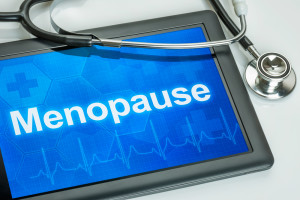Written by Angeline A. De Leon, Staff Writer. Just 14 weeks of supplementation with a modest dose of 75 mg of resveratrol significantly improved cerebrovascular function and reduced cognitive decline in 39 participating postmenopausal women.
 Cognitive health relies on a functional cardiovascular system, one which can effectively deliver blood to the brain and efficiently dilate the cerebral arteries in response to stimuli (known as cerebrovascular response, CVR) 1,2. When cerebral blood flow is inadequate, both cognitive performance and mood may suffer 3, which is evident in the case of post-menopausal women. Age-related loss of estrogen has been linked to weaker CVR and as a result, the risk of depression and dementia remains disproproriately higher in senior women vs. men 3-5. As a plant-based estrogen, resveratrol has been shown to promote cerebral blood flow 6 and improve cognitive and emotional functioning 7, offering post-menopausal women a promising form of therapeutic treatment. To understand the potential efficacy of resveratrol, a 2017 study published in Nutrients conducted the first investigation on long-term resveratrol supplementation and its effects on cognitive performance and CVR in post-menopausal women.
Cognitive health relies on a functional cardiovascular system, one which can effectively deliver blood to the brain and efficiently dilate the cerebral arteries in response to stimuli (known as cerebrovascular response, CVR) 1,2. When cerebral blood flow is inadequate, both cognitive performance and mood may suffer 3, which is evident in the case of post-menopausal women. Age-related loss of estrogen has been linked to weaker CVR and as a result, the risk of depression and dementia remains disproproriately higher in senior women vs. men 3-5. As a plant-based estrogen, resveratrol has been shown to promote cerebral blood flow 6 and improve cognitive and emotional functioning 7, offering post-menopausal women a promising form of therapeutic treatment. To understand the potential efficacy of resveratrol, a 2017 study published in Nutrients conducted the first investigation on long-term resveratrol supplementation and its effects on cognitive performance and CVR in post-menopausal women.
A total of 80 post-menopausal women (ages 45-85) participated in a 14-week randomized, double-blind, placebo-controlled intervention trial, during which they were assigned to consume either 75 mg of trans-resveratrol or a placebo pill twice daily. At baseline and follow-up, the subjects performed a series of cognitive tests and completed questionnaires pertaining to mood. CVR was assessed using a Transcranial Doppler ultrasound, which recorded the responsiveness of a major cerebral artery during cognitive testing as well as during the hypercapnic challenge (a test of cerebrovascular reserve involving the inhalation of a higher CO2 gas mixture to stimulate cerebral blood flow).
At the end of the 14-week intervention, researchers found that the resveratrol group outperformed the placebo group on all individual cognitive tasks, showing significant improvements in overall cognitive performance (p = 0.020, Cohen’s d = 0.69) and verbal memory (p = 0.041, Cohen’s d = 0.47). In terms of cerebrovascular function, the resveratrol group, as compared to placebo, showed significant improvement in CVR to hypercapnia by a magnitude of 7% (p = 0.010, Cohen’s d = 0.69) and in CVR to cognitive testing (p = 0.002, Cohen’s d = 0.71). Importantly, overall cognitive performance was found to be significantly correlated with increased CVR to the cognitive test battery (r = 0.327, p = 0.048). In terms of mood, resveratrol supplementation was associated with a significant reduction in anxiety (p = 0.025, Cohen’s d = 0.50).
Findings from the study demonstrate that sustained consumption of resveratrol at moderate doses is not only tolerable, but beneficial for mood and overall cognitive performance in post-menopausal women. Such effects may be due to the ability of resveratrol to enhance the responsiveness of cerebral vessels, especially during times of demand. Dietary supplementation from sources such as red grapes, blueberries, and peanuts may, therefore, be helpful in protecting against premature menopause-related cognitive decline. Because of the correlational nature of the study, further research involving the analysis of biomarkers is needed to shed light on the direct mechanisms underlying resveratrol’s effects.
Source: Hamish M. Evans, Peter R. C. Howe and Rachel H. X. Wong. Effects of Resveratrol on Cognitive Performance, Mood and Cerebrovascular Function in Post-MenopausalWomen; A 14-Week Randomised Placebo-Controlled Intervention Trial. Nutrients 2017, 9, 27; doi:10.3390/nu9010027
© 2017 by the authors; licensee MDPI, Basel, Switzerland. Creative Commons Attribution (CC-BY) license (http://creativecommons.org/licenses/by/4.0/
Click here to read the full text study.
Posted April 18, 2017.
References:
- Silvestrini M, Pasqualetti P, Baruffaldi R, et al. Cerebrovascular reactivity and cognitive decline in patients with Alzheimer disease. Stroke. 2006;37(4):1010-1015.
- Sun ZW, Zhu YX, Liu HY, et al. Decreased cerebral blood flow velocity in apolipoprotein E ɛ4 allele carriers with mild cognitive impairment. European journal of neurology. 2007;14(2):150-155.
- Weber MT, Maki PM, McDermott MP. Cognition and mood in perimenopause: a systematic review and meta-analysis. The Journal of steroid biochemistry and molecular biology. 2014;142:90-98.
- Matteis M, Troisi E, Monaldo BC, Caltagirone C, Silvestrini M. Age and sex differences in cerebral hemodynamics. Stroke. 1998;29(5):963-967.
- Neu P, Schlattmann P, Schilling A, Hartmann A. Cerebrovascular reactivity in major depression: a pilot study. Psychosomatic medicine. 2004;66(1):6-8.
- Kennedy DO, Wightman EL, Reay JL, et al. Effects of resveratrol on cerebral blood flow variables and cognitive performance in humans: a double-blind, placebo-controlled, crossover investigation. The American journal of clinical nutrition. 2010;91(6):1590-1597.
- Kodali M, Parihar VK, Hattiangady B, Mishra V, Shuai B, Shetty AK. Resveratrol prevents age-related memory and mood dysfunction with increased hippocampal neurogenesis and microvasculature, and reduced glial activation. Scientific reports. 2015;5:8075.
